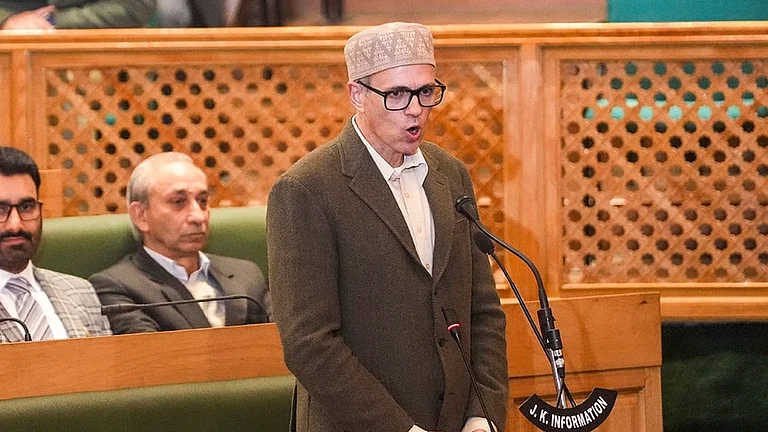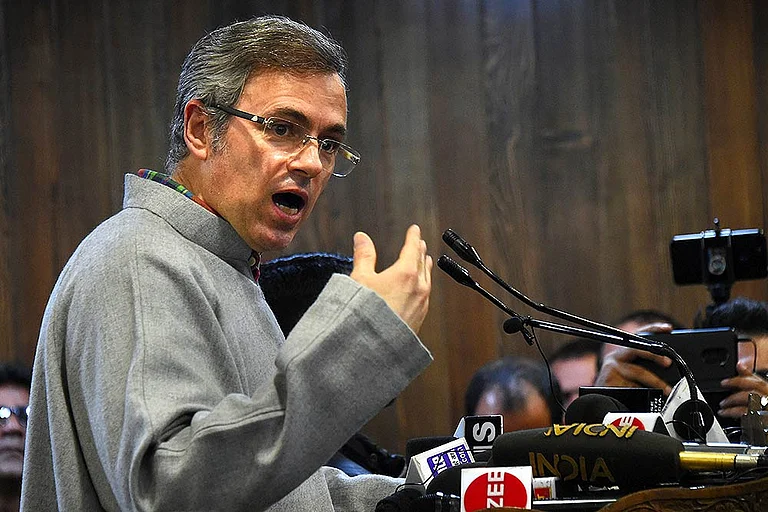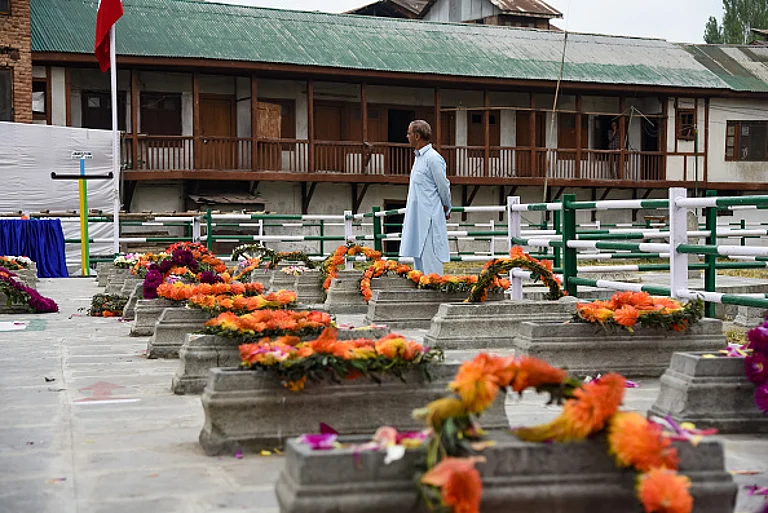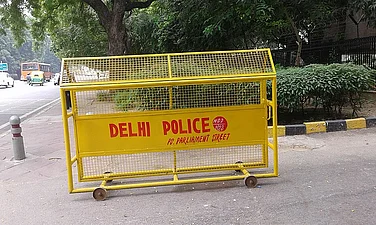Defying restrictions imposed a day earlier wherein access was sealed to the Martyrs’ Graveyard in Srinagar’s Nowhatta locality, near the Naqshband Sahib shrine in Downtown; the J&K Chief Minister Omar Abdullah, in a video was seen climbing over a wall on Sunday to reach the graveyard and pay respects to those killed on 13 July 1931. He was accompanied by several cabinet colleagues.
The video uploaded on X by the Jammu Kashmir National Conference (JKNC), the Chief Minister can be seen climbing over the wall. The twitter caption said, "No restrictions can silence us; our democratic rights will prevail. We forever honour the July 13, 1931, martyrs who rose against tyranny."
In another recent video uploaded on the party's X handle, the Minister along can be seen being manhandled by the security forces stationed at the graveyard, moving forward, the full video shows, that after entering into the premises, Omar Abdullah pays his respect to the Martyr's and spreads flower petals across the graves.
The site marks the burial place of 22 individuals shot dead by Dogra forces during a protest outside Srinagar Central Jail. The protestors had gathered to demand the release of Abdul Qadeer Khan, who had delivered a fiery speech against the monarchy. The day is widely seen as a key turning point in Kashmir’s political history, leading to the formation of the Muslim Conference in 1932 and, later, the National Conference.
Until 2019, the day was observed as Martyrs’ Day and was a public holiday in the former state of Jammu and Kashmir. That status was revoked following the abrogation of Article 370.
On Saturday, authorities sealed parts of Downtown Srinagar and reportedly placed several political leaders, including Abdullah, under house arrest. Other opposition figures, including PDP leaders and Sajad Lone of the People’s Conference, also said they were prevented from visiting the graveyard. Mirwaiz Umar Farooq was barred from leading Friday prayers, reportedly to prevent any public tribute to the martyrs.
Speaking to reporters, Abdullah criticised the administration’s actions, calling them excessive and unnecessary. He described the day as one of collective remembrance, not political provocation, and questioned the need to detain elected representatives to prevent a tribute.
The revocation of Martyrs’ Day from the official calendar has drawn growing criticism from regional parties, who say the move is part of a wider effort to erase local history.
The Jammu and Kashmir administration has not issued a detailed explanation for this year’s restrictions but has cited "law and order considerations" in previous instances.
Political statements poured in throughout the day. The PDP called the curbs "a denial of democratic space", while Lone’s People’s Conference described the house arrests as "arbitrary and excessive".
Tanveer Sadiq, Chief Spokesperson of the Jammu and Kashmir National Conference, whilst commenting on the video of Omar Abdullah being manhandled, said, "An elected Chief Minister, chosen by the people with an overwhelming mandate, being manhandled at the behest of unelected individuals is a disgrace to our democracy. This is not just unacceptable, it is shameful. We owe it to the people of Jammu and Kashmir to unequivocally condemn this disturbing and undemocratic act.”






















.png?w=200&auto=format%2Ccompress&fit=max)





